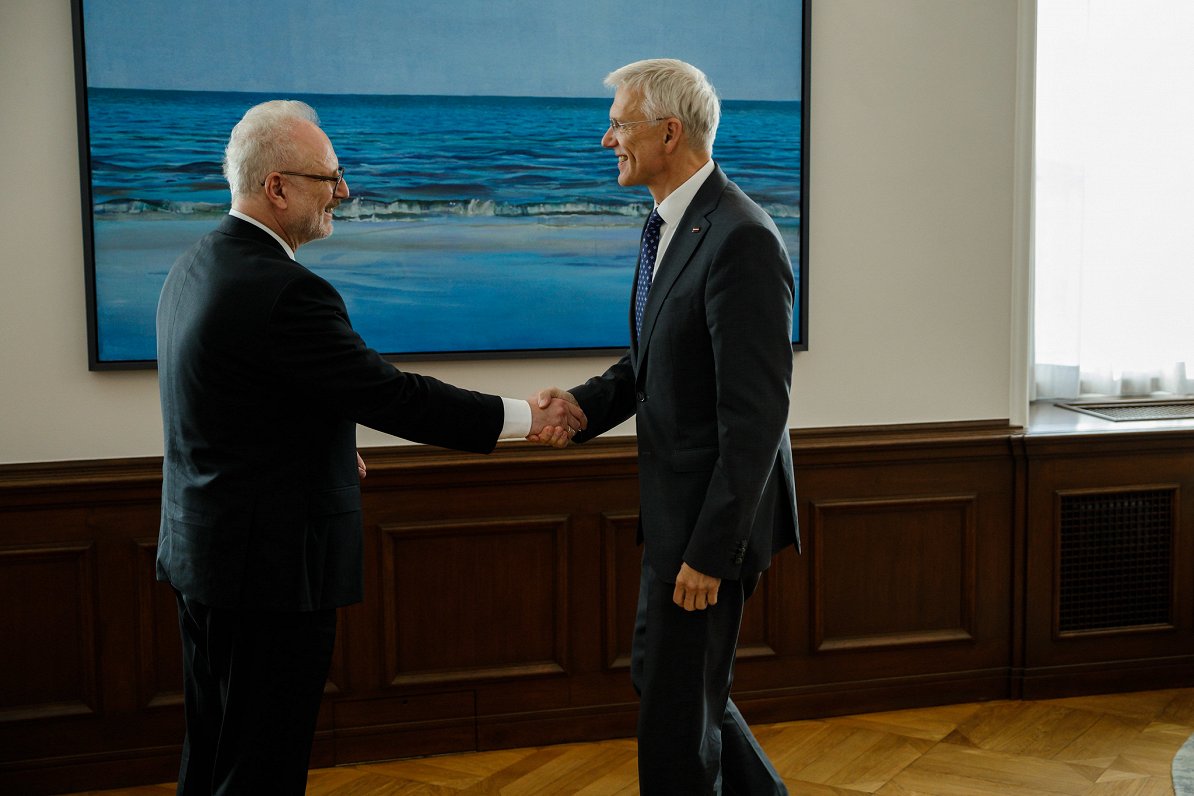The president believes the new government could be set up by both three parties with 54 seats and four parties with 64 seats.
Two weeks of almost daily talks about the formation of the new government have passed. On Monday, the President met Kariņš, and after the meeting, Levits asked that negotiations continue.
“It has not crystallized yet what could be the basis for the next coalition. There is a need for detailed talks, so I ask them to be clarified and to look at it field by field,” the president said. He is confident that the new government will succeed in setting up in November.
Kariņš intends, when meeting with parties, to understand which areas the political forces agree on. Political discussions will go on regarding education and science issues, economy, and the rule of law. On the issue of internal and external security, the Prime Minister wants to achieve a common understanding with all potential coalition partners that the National Defense Service will be implemented in reasonable time and that 3% of the gross domestic product will be targeted for defense by 2027.
"When I gain confidence that there is a core of parties that are willing to work on shared goals, then I will offer partners and how a breakdown of ministerial portfolios might look. Building a government is not about redistributing chairs, but how the government will work together. Above all, so that it is not in the interest of a narrow economic group," said Kariņš.
The president will wait for the next report on forming the government in a week. Kariņš said that the aim was to continue working on building a coalition, “as quickly as possible”.
As previously reported by LSM, negotiations center on whether a narrow three-party, right-of-center coalition of New Unity, the National Alliance and the United List will form the executive, or whether a broader four-party model including the left-leaning Progressives will be preferable.





























